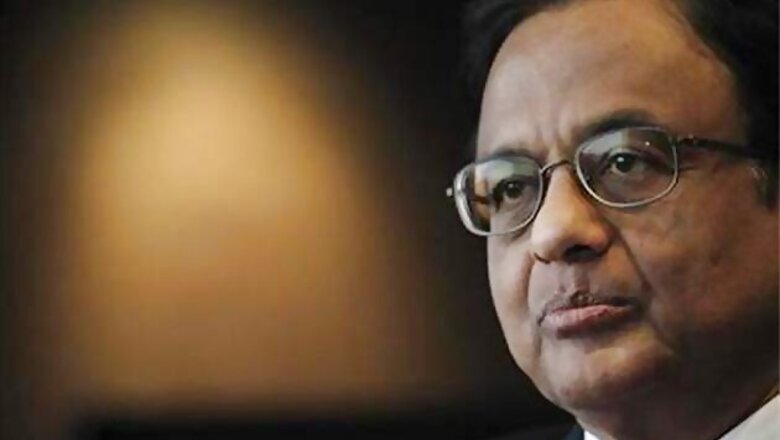
views
Hong Kong: India's economy will grow "no better than" 5.7 per cent in the current fiscal year but will regain traction in 2013/2014, the finance minister said on Tuesday, as he sought to reassure international investors that the government remained committed to pro-growth policies and reforms. P Chidambaram made the comments at a media briefing after meeting investors in Hong Kong as part of a four-city tour to try and boost capital flows into Asia's third-largest economy.
The minister also sought to allay fears that India was in danger of losing its investment-grade credit rating and being downgraded to "junk" status, as policymakers struggle to revive economic growth, rein in subsidies and hold down the fiscal deficit without triggering a backlash ahead of 2014 elections. "I was not worried when I took over (as finance minister) in August 2012, and after so many steps that we have taken, I think I should be less worried. In fact, all of us should be less worried. There should no case whatsoever for anybody to downgrade India," he said.
"The silver lining is we are able to finance the current account deficit without reserves. Thankfully there are enough inflows of FDIs (foreign direct investment) and FIIs (foreign institutional investment) and companies are able to raise money abroad under external commercial borrowing," he said.
In 2012, Fitch and Standard and Poor's cut their ratings outlooks for India to "negative", citing its slowing growth and bloated deficit and putting it in danger of being the first of the BRICs (Brazil, Russia, India, China, and South Africa) grouping of fast-growing economies to be downgraded to sub-investment-grade status. Chidambaram said he expected the economy to grow by no more than 5.7 per cent in the current fiscal year ending in March, but predicted it would pick up momentum in the following year beginning in April, expanding by 6-7 per cent.
India's economy extended its long slump in the July-September quarter and looked on track for its worst full-year performance in a decade, highlighting the urgency of politically difficult reforms to revive activity. Since Chidambaram was appointed, the government has opened up the retail sector and pushed reforms to allow more foreign investment in its insurance and pension sectors and simplify its tax laws.
Last week it allowed state fuel retailers to raise prices to gradually align them with market rates and help cut its fuel subsidy bill. The finance minister said there was also room to sell off more state assets to ease fiscal strains.
He forecast the government would raise $5 billion from such divestments in the current fiscal year and said he had approval for further sales in the next few years. Chidambaram will also meet investors in Singapore, London and Frankfurt over the next week.
"The finance minister was both clear and confident of what needs to be done, how and when it will be done, and timelines," said a research note released by Citi, which hosted Chidambaram's meeting earlier in the day with more than 200 equity and fixed-income investors. "The market has been cautious leading into what is seen as an 'election/populist' budget in February 2013. The finance minister was decidedly more positive. He suggests the fiscal deficit target will be met, taxes will not be raised and while policy will and should be biased towards the poor, the budget will offer a lot."
The minister assured investors that the government's top priority is curtailing spending in the short term, while in the medium-term it aims to cut the fiscal deficit by 60 basis points per year, reducing it to 3 percent in four years from an expected 5.3 per cent this fiscal year, the note from Citi said.














Comments
0 comment